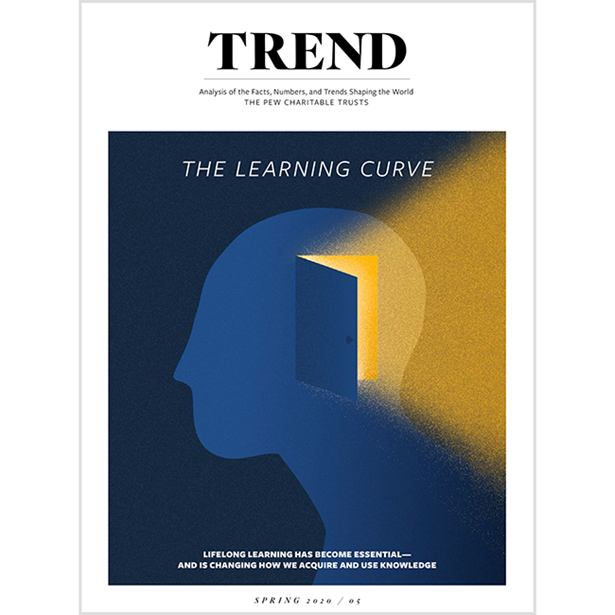Progress Still Comes From Data, Science and Facts
We are living in what some have declared a “post-truth” era, in which facts are considered negotiable, irrelevant, or simply another name for opinion. That makes it an interesting time to lead an institution that is built on the power of facts.
A quarter-century ago, we were profiled in the pages of this magazine, in a piece about the Pew Charitable Trusts called “Foundation for the Future.” At that time, we could not have predicted that by 2017, Pew’s own research would show that only 19 percent of Americans trust the government to do the right thing all or most of the time—quite a decline from 77 percent in 1964. Nor could we have anticipated what our surveys now show about increasing partisanship and more polarized communications channels: that liberals and conservatives have vastly different media diets; that Americans get more and more of their news via social media, with 14 percent saying they had shared a news story they knew was untrue; and that the vast majority of U.S. adults say fake news has left Americans confused about basic facts.
And yet, as a global nonprofit, dedicated to making long-lasting, positive change based on high-quality research, we continue to believe—as we emphasized in that Town & Country story 26 years ago—that “if we are committed, innovative, and thoughtful, there’s nothing we as a country can’t solve.” Of course, the current climate creates a high hurdle for convincing the public that evidence and science can and should educate and inform, guide policy, and be used to speak truth to power. But take heart! We at Pew consistently see our colleagues, along with our many philanthropic partners, clearing that hurdle by being nonpartisan, data-driven, and dedicated to using the power of solid facts and strong science to solve some of today’s most difficult problems.
For example, for the past 10 years, we have conducted analyses of the effects of various sentencing and corrections policies and trends throughout the U.S., and used those analyses to issue groundbreaking reports, provide technical assistance to state policymakers, and sponsor forums designed to share best practices. As a result, 33 states have enacted policies projected to save taxpayers more than $4.6 billion, while America’s incarceration rate has fallen in tandem with crime rates in states across the country.
Science also demonstrates the fragility of our oceans, which provide sustenance for billions of people and myriad species of animals, produce more than half of the world’s oxygen, and store much of its carbon dioxide. In partnership with a group of visionary philanthropists, and armed with science, we set out a decade ago to establish the first generation of “parks in the sea.” After a sustained global effort, the United States and five other countries have created nine large marine reserves protecting more than 2.4 million square miles of ocean—an area roughly equivalent to two-thirds of the continental United States.
The 1991 profile characterized Pew as “the prototype for a wave of aggressive and innovative major foundations on the cutting edge of new thinking.” Since then, we have evolved our structure and expanded our agenda but, at our core we remain unflinchingly dedicated to high-quality research that can be deployed to guide positive and measurable change. And we still live by the optimistic expectation that animated our founders: that progress springs from data, science, and facts.
This story originally appeared in the June/July 2017 issue of Town & Country.











